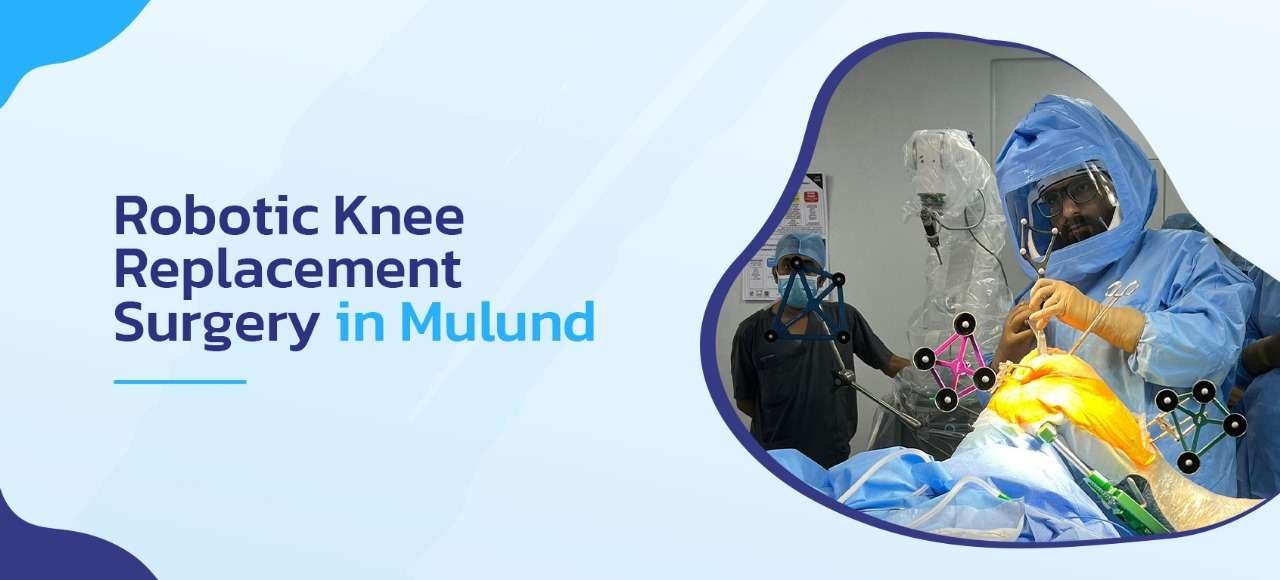
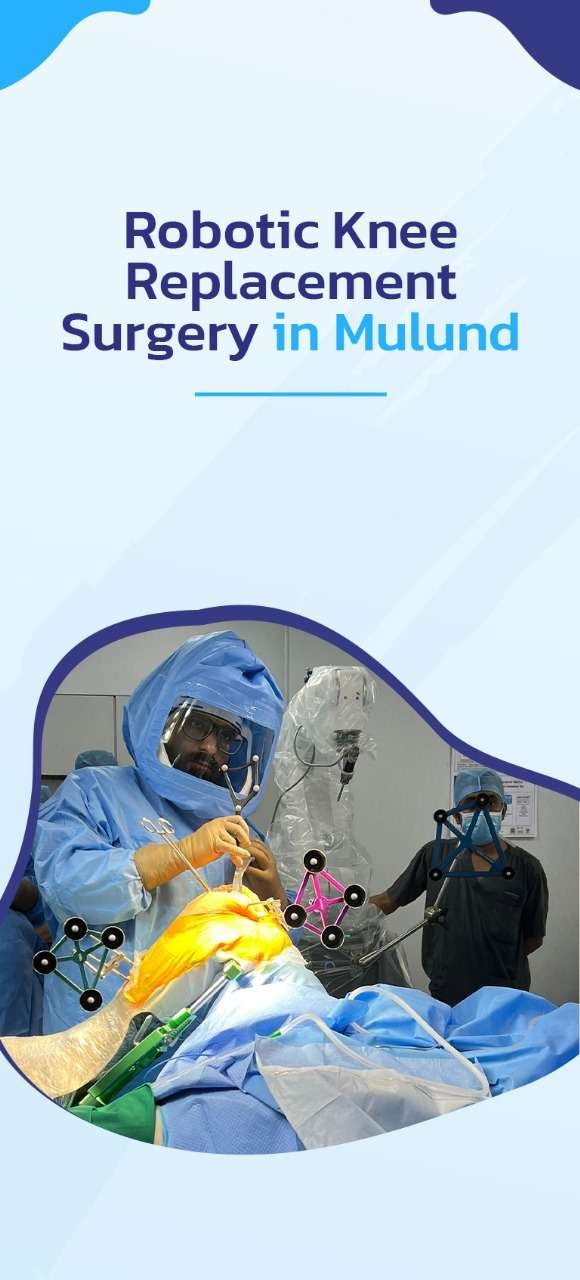
Undergoing knee replacement surgery is a significant step towards regaining mobility and reducing pain for individuals suffering from knee joint problems. However, the success of the surgery largely depends on the post-operative recovery process. A speedy and efficient recovery is crucial to getting back to an active and pain-free life. To help you achieve a faster recovery after knee replacement surgery, here are five essential tips to keep in mind.
Your Knee Replacement Surgeon will provide you with specific post-operative instructions that are tailored to your condition. It’s imperative to adhere to these guidelines diligently. These instructions will include information about wound care, pain management, mobility exercises, and dietary recommendations. Be sure to follow the prescribed medication schedule and attend all follow-up appointments. Your surgeon’s guidance is based on their expertise and will significantly contribute to your recovery.
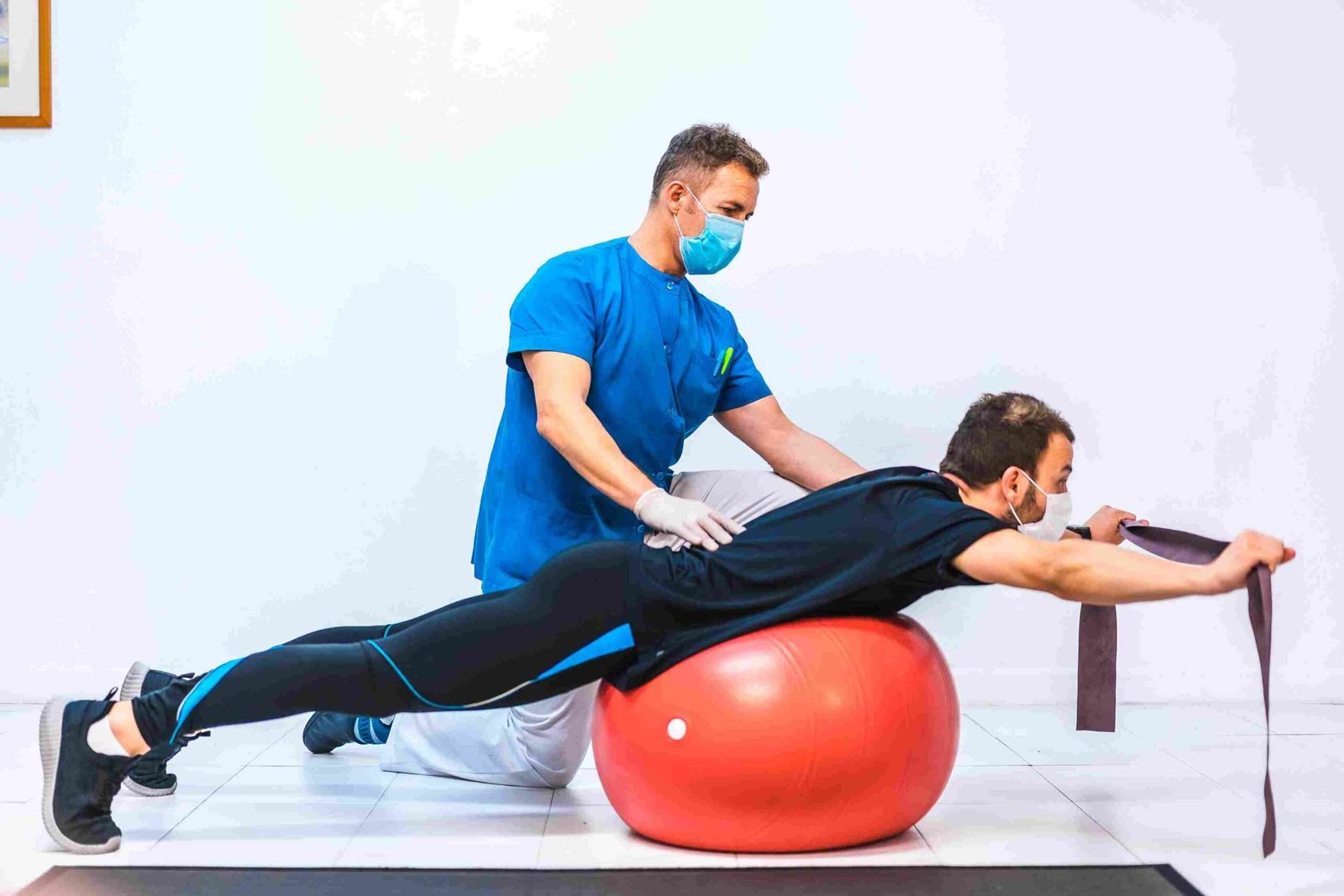
Physical therapy plays a pivotal role in knee replacement recovery. Early mobility and exercise are key to regaining strength and flexibility in the knee joint. Your physical therapist will design a customized exercise program that gradually increases in intensity as you heal. These exercises may include gentle range-of-motion movements, leg lifts, and light resistance training.
Regular exercise not only strengthens the muscles around your knee but also helps reduce swelling and improve circulation. TKR Recovery Time varies, but physical therapy and exercises are key.
A balanced and nutritious diet is essential for a swift recovery after knee replacement surgery. Proper nutrition supports the healing process, strengthens your immune system, and can aid in weight management. Foods rich in vitamins, minerals, and protein are crucial for tissue repair and muscle recovery. Ensure you stay hydrated by drinking plenty of water to avoid complications and support overall health.

Pain management is a significant aspect of your recovery process. Your surgeon will prescribe pain medications, but it’s essential to take them as directed and report any unusual or severe pain. In addition to medication, you can incorporate other pain management techniques, such as using ice packs, elevating your leg, and practicing relaxation techniques. Discuss your pain management strategy with your healthcare provider to ensure it aligns with your specific needs and preferences.
Recovery after knee replacement surgery is a common desire, but it’s essential to remember that rest is equally vital. While it’s natural to want to get moving, balancing activity with proper rest is crucial for healing. During the initial months, you might experience some swelling in the operated knee. Rest is your ally in speeding up the healing process. Adequate rest is required for optimal Recovery After Knee Replacement Surgery.
Recovery time after knee replacement surgery, also known as Total Knee Replacement (TKR), is a critical phase that demands dedication and patience. The healing time for knee replacement may vary, but following the knee replacement recovery process is essential. Adhering to your surgeon’s instructions, engaging in physical therapy and exercises, maintaining a healthy diet, and effectively managing pain are key factors. Additionally, creating a supportive environment is crucial. Remember, every individual’s knee replacement recovery time is unique, so consult your healthcare team for personalized guidance. With the right approach, you can anticipate an active and pain-free life post-surgery.
If you’re seeking a skilled Knee Replacement Surgeon in Thane, look no further than Dr. Bakul Arora at Arora Clinic. Dr. Bakul Arora specializes in Robotic Knee Replacement Surgery, offering cutting-edge Orthopaedic Surgery in Thane. His expertise & experience in Robotic Surgery makes him the best Robotic knee replacement surgeon in Thane. Visit Arora Clinic, a trusted destination for those in need of advanced knee care.
As above, There are various Types of knee replacement surgeries available in India.
We are really honored to receive this and we will continue to serve the society better than ever We aim to provide the world-class Knee/Hip Replacement Surgical (Minimal Invasive Surgery) treatment to every patient suffering from knee or hip pain and at the same time make their life pain-free and happy.
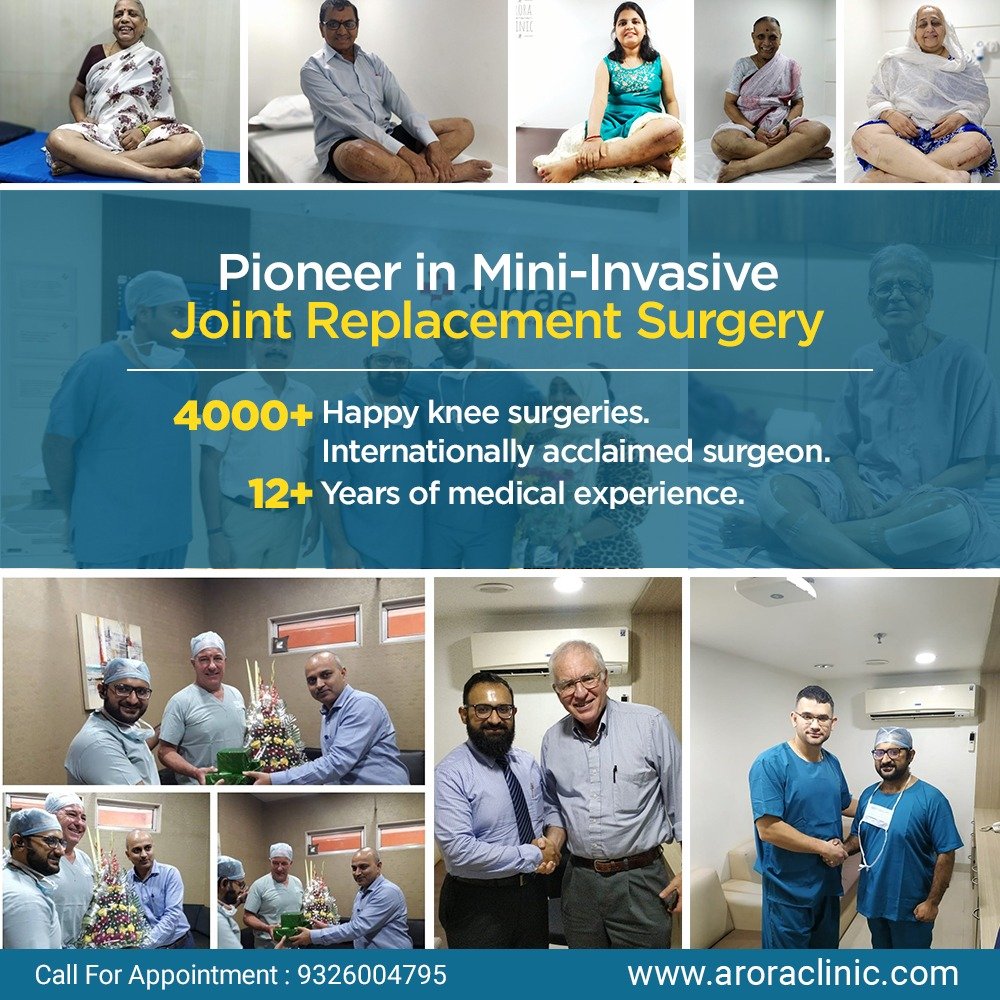
Dr. Bakul Arora’s Joint Replacement Clinic is also known as “Arora Clinic” which is located at Hiranandani Meadows in Thane, within a very convenient proximity to Mumbai. Arora Clinic dedicated clinic for Knee Replacement surgery and all kinds of Orthopaedic treatments and surgeries
The Arora Clinic is one of the most advanced Orthopaedic clinic in Thane region and dedicated to providing the best, personalised healthcare with a breadth of surgical and medical expertise. Arora Clinic offers the modern surgical treatments like “Minimally Invasive Knee Replacement Surgery” which is also called as “PAIN-LESS SURGERY” for any complex knee diseases.
Dr. Bakul Arora is a Consultant Joint Replacement & Orthopaedic Surgeon is one of the leading Knee Replacement Surgeon in Thane and Mumbai with over 4000+ successfully surgeries. Dr. Bakul Arora specialises in Mini-invasive techniques which offer multiple benefits to patients. He does the surgery using Subvastus approach for Knee Replacement surgery and Direct Anterior Approach for Hip replacement Surgery . This new techniques has many advantages for patients like its pain-less , stich-less surgery, patients walks on the same day after surgery, no blood loss, faster recovery etc.


Knee replacement is required for advanced arthritis of the knee joint, producing painful limitation of movements and restriction in activities of daily living. Knee replacement as a solution should be offered when all non–surgical methods of treatment failed and painkiller medicines and injections also failed to reduce the Knee and hip pains.
Knee replacement can be total or unicondylar, depending on the number of compartments involved. Among the total knee replacement, there are two popular designs- Cruciate Retaining, and Posterior Stabilized. The decision for the design is best taken by the operating orthopedic surgeon based on the integrity of ligaments. Patella resurfacing as a routine is a debatable subject.
Yes, most knee replacement surgeries are minimally invasive, with numerous benefits to the patient, including smaller incisions, less tissue trauma, bleeding and post–operative pain, shorter hospital stays, faster recovery, and earlier return to work and activities — in weeks rather than months. Advantages of Minimally Invasive Knee Replacement Surgery. Patients Start walking in few hours of surgery. Patients start climbing the staircase from second day of his surgery. Patients Discharge with in 3 Days from the Hospital after surgery. No blood loss during the surgery, no blood Transfusion required. Less Physiotherapy.( No Physiotherapist required for home) Less Antibiotic. Stitchless Surgery. Recovery time is just two – three week.
Bilateral knee replacement in the same sitting, can be performed if both the knee joints are damaged to the same extent, however, the medical condition of the patient, and bone quality must be kept in consideration.
Surgery through Minimally Invasive technique patients start walking on the same day and staircase climbing starts from the second day of surgery. Patients can resume his work after 3 – 4 week.
The most significant risks include Infection, Deep vein thrombosis,and Aseptic loosening of implants. The risks correlate with the co-morbid medical condition, and must be discussed with the patient before surgery.
Patients normally require hospitalization for 3-4 days in single knee replacement, and up to 5-6 days in both knee replacement surgery
A single knee replacement takes approximately 90 min- 2 hours. Both knee replacement surgery takes approx 2-3 hours.
Years ago, knee replacement surgery was reserved for elderly patients due to a high complication rate and lack of implant durability. Modern techniques have allowed orthopaedic surgeons to base surgical decisions on a patient’s pain and disability, and not necessarily chronological age. Most patients who undergo knee replacement are between the ages of 50 and 80, but surgeons evaluate patients individually and primarily on their physiologic age and demands.
Patients can resume his/her light work after discharge from the hospital, no need for rest.
Patients are given epidural anesthesia for surgery, and post op pain relief. They are expected to follow instruction from physiotherapist regarding muscle training.
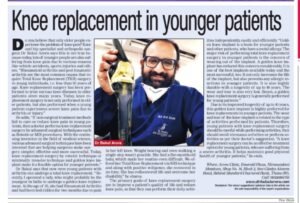
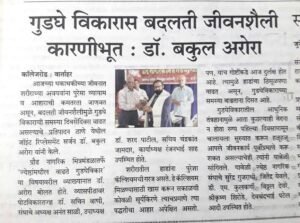
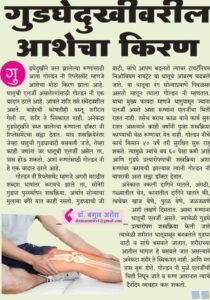

⇒ Wockhardt Hospital Mumbai Central, Mira road & Vashi
⇒ Apollo Spectra Hospital, Tardeo and Chembur
⇒ Cloud 9 Hospital, Malad
⇒ Criticare Hospital, Andheri
⇒ Arora Clinic, Hiranandani Meadows
⇒ Bethany Hospital, Vasant Vihar
⇒ Currae Hospital, Kapurbawdi
⇒ Horizon Hospital, Ghodbunder
⇒ Infinity Hospital, Majiwada
⇒ Lakecity Hospital, Khopat
⇒ Oscar Hospital, Majiwada
⇒ Drone Hospital, Bhiwandi
WhatsApp us